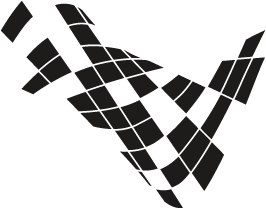Haichen Shi is a third year PhD student (since 2014), working with Dr. Elizabeth Cross and Prof. Keith Worden. His research topic is about structural health monitoring using time series and machine learning methods. Mr Shi obtained his B.Eng (2011) and MSc (2014) both from Nanjing University of Aeronautics and Astronautics.
Research interests
- Structural health monitoring
- Cointegration analysis
- Time series
- Gaussian process
- State space model
Current research
Haichen’s current research focuses on addressing the issue of environmental and operational variations in structural health monitoring data, which has become a critical challenge for the SHM industry. The changes caused by daily temperature variations, for example, can sometimes overwhelmingly mask any potential signals of damage, which can produce unwanted misleading conclusions of the state of this structure.
Cointegration has recently been established to be a powerful tool to address this issue. Haichen’s work is mainly about developing nonlinear cointegration approaches to deal with nonlinear effects in real engineering data. His work largely falls into two categories, classical time series method and machine learning method.
Here is an example coming from the SHM study of the Z24 Bridge, which now has become a benchmark in the field. The plot below shows a residual series working as a damage indicator which largely maintains stationary until damage occurs (the red vertical line), the series becomes immediately nonstationary and exceeds the upper boundary the moment damage is introduced. This plot comes from my recent work, which involves a regime switching cointegration method, the grey areas in the plot indicate where regimes shift.

Publications
- H. Shi, K. Worden, E. Cross. A Regime Switching Cointegration Approach for Removing Environmental and Operational Variations of Structural Health Monitoring (in preparation for MSSP)
- H. Shi, K. Worden, E. Cross. An Exploratory Study on Removing Environmental and Operational Effects Using A Regime-Switching Cointegration Method (IMAC conference 2017)
- H. Shi, K. Worden, E. Cross. A Nonlinear Cointegration Approach with Applications on Structural Health Monitoring (RASD conference 2016)
- H. Shi, K. Worden, E. Cross. A Time Series Decomposition Method to Cointegration for Heteroskedastic Data in Structural Health Monitoring (in preparation for IWSHM conference 2017)
- N. Dervilis, H. Shi, K. Worden, E. Cross. Exploring environmental and operational variations in SHM data using heteroscedastic Gaussian processes. (IMAC conference 2014)

